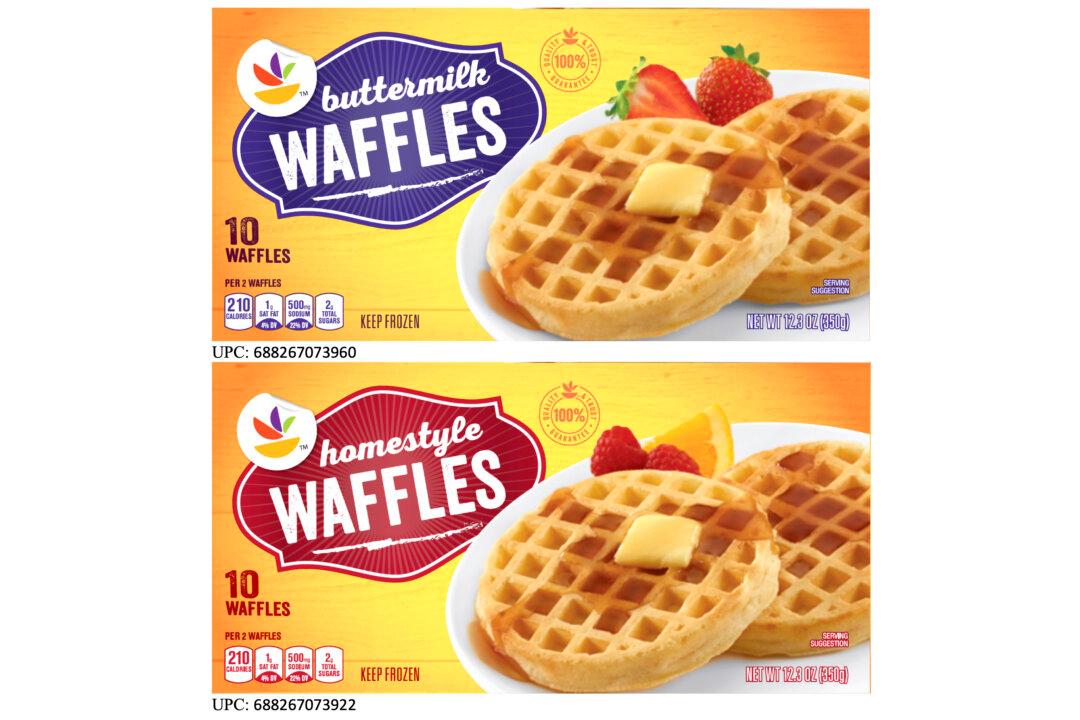Multiple brands of frozen waffle products sold by Illinois-based TreeHouse Foods are being pulled from the market after the items were suspected of being contaminated with the bacteria Listeria monocytogenes.
The voluntary recall was issued after Listeria contamination was discovered during routine testing at the company’s manufacturing facility, according to an Oct. 18 company announcement published by the U.S. Food and Drug Administration. The items were distributed throughout the United States and Canada.





